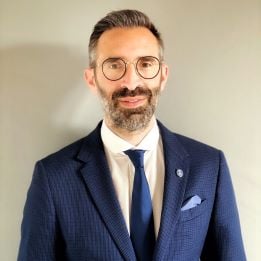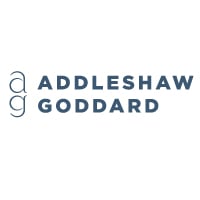

Chief Legal Officer | Paris Saint-Germain



Julien Letellier
Chief Legal Officer | Paris Saint-Germain
Team size: 10
How do you approach managing legal aspects during periods of instability or crises, and how does your legal strategy align with the broader business strategy to ensure the organisation’s resilience?
During times of instability or crisis, my approach to managing legal matters is centered on proactivity, risk management, and alignment with Paris Saint-Germain’s business objectives to ensure organisational resilience.
Proactively identifying potential legal risks is crucial for Paris Saint-Germain’s organisation. By regularly collaborating with internal teams, we ensure a comprehensive understanding of business challenges to address risks preemptively. We closely monitor developments, emerging risks, and market dynamics to anticipate issues that may affect our organization. During times of crisis, I believe it is essential for the legal function to be part of the crisis management team, enabling collaboration with leaders from various departments to ensure our legal strategy is aligned with the overall crisis response. This integration helps us address legal issues, such as contractual disputes, in a manner that supports business continuity. Maintaining compliance during a crisis is crucial for minimising risks. My team ensures that the company remains aligned with evolving laws and regulations that could affect our business, particularly in areas such as sponsorship matters. The legal strategy must align with the organisation’s broader business goals. During crises, this means focusing not only on legal protection but also on safeguarding long-term interests. We work closely with Paris Saint-Germain’s management to guide legal actions, such as contract negotiations or litigation decisions, to contribute to the organization’s recovery and future growth. Beyond managing the immediate crisis, my team focuses on how the organisation can emerge stronger. This may involve renegotiating contracts or securing favorable terms in new deals.
What emerging technologies do you see as having the most significant impact on the legal profession in the near future, and how do you stay updated on these developments?
Several emerging technologies are set to significantly impact the legal profession in the near future, particularly in areas like counterfeit product monitoring and legal automation platforms. Artificial Intelligence (AI) and Machine Learning: AI is revolutionising legal workflows by automating tasks such as legal research, contract review, and case prediction. One particularly valuable application is AI-powered counterfeit product detection which Paris Saint-Germain currently uses through a service made also accessible by the ECA to 500 European clubs. These tools monitor online marketplaces to identify counterfeit goods, helping clubs to protect their intellectual property. AI scans listings, identifies fraudulent products, and assists in initiating legal takedowns or enforcement actions, offering a faster and more efficient response to counterfeit risks. Blockchain technology is also transforming the management of contracts and intellectual property. It enhances intellectual property (IP) protection through its transparency, immutability, and decentralisation. Blockchain creates secure, unchangeable records of ownership, facilitates smart contracts for automatic license management and royalty payments, and tracks the lifecycle of IP assets.
Additionally, automation platforms are designed to streamline routine legal tasks such as contract generation and e-discovery. I believe the latter can be particularly beneficial by (i) identifying, collecting, and analysing stored information relevant to a legal case, and (ii) tracking and analyzing key performance indicators (KPIs) pertinent to a legal department. These platforms will also undoubtedly enhance efficiency and lower costs by managing repetitive tasks. In the context of counterfeiting, automated platforms can monitor online listings, flag suspicious products and take them down in very large volumes. In this context, data analytics is becoming increasingly vital in legal practice, allowing lawyers to process large volumes of information to identify trends, forecast outcomes, and evaluate risks. Specifically, in cases of counterfeiting, analytics tools can help detect patterns in the emergence of fake products, offering valuable insights into the functioning of counterfeit markets.
To keep up with technological advancements, I use several strategies:
Continuous Learning: I regularly attend webinars and conferences which can offer in-depth analysis of the latest tools and technologies available.
Collaboration: I collaborate with experts such as brand protection specialists, to stay informed about the most effective AI tools and share best practices.
I am also enthusiastic about encouraging the testing of new technologies, as we did with the AI-driven counterfeit detection system, which we assessed prior to implementing it in the organisation after recognising its potential benefits. As of today, we are testing a tool to centralise and optimise our legal research through artificial intelligence.
Chief Legal Officer | Paris Saint-Germain
Chief legal officer | Paris Saint-Germain